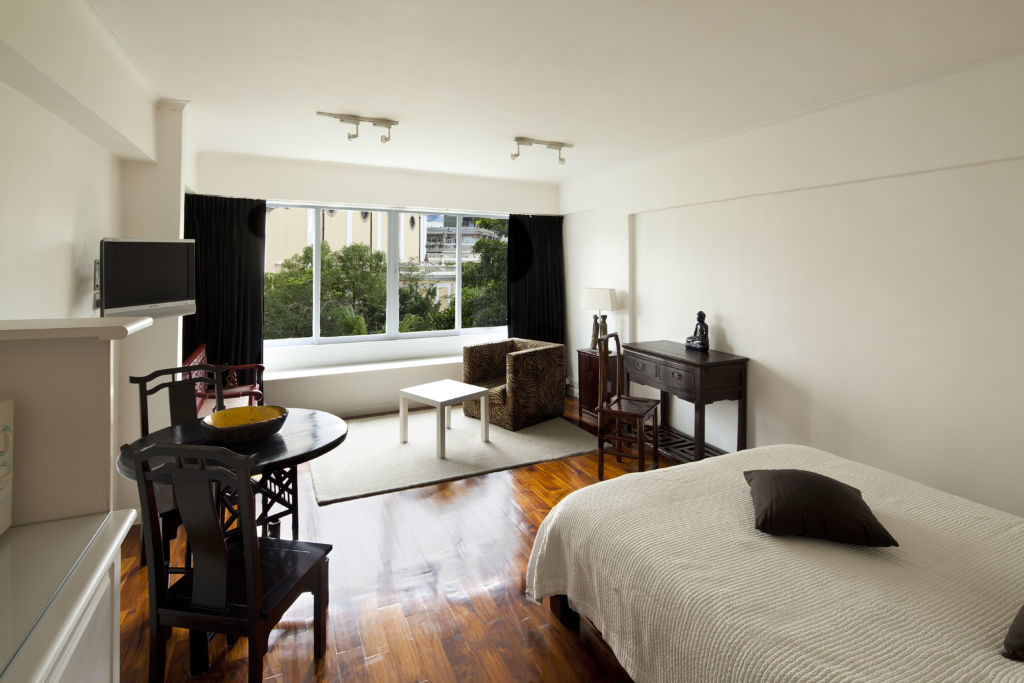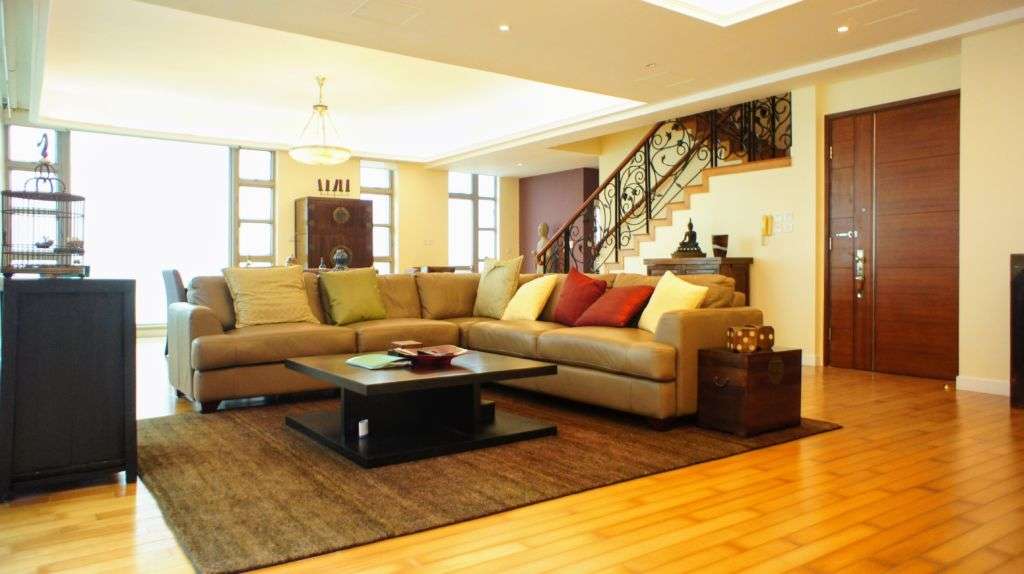The old adage of “treat others as you want to be treated” should, in theory, be applicable to the landlord-tenant relationship. If, as a tenant, you take care of the property you’re renting, pay your rent on time, and reply promptly to any communication from the landlord, then all should go swimmingly well and you, in turn, should be able to expect to receive the same respect and care from your landlord.
Generally speaking–and this comes from over 16 years of working in the leasing business here–our experience is that landlords take a decent amount of care of their properties and their tenant’s needs. However, irrespective of country or culture, around the world the landlord-tenant bond can be fragile and things will go awry. Especially when there is a language barrier–when, say, the landlord lives overseas or only speaks Chinese and the tenant only speaks English! So here are a few pointers on dealing with Macau landlords, which will hopefully help those of you renting to have a comfortable and happy stay.
As an initial point, we should mention that Macau tenancy laws favor the tenant over the landlord. If there’s any disagreement or doubt on interpretation of the law, in the majority of cases the tenant is protected.
DURATION OF LEASE
In Macau, the maximum rental lease term is 30 years and there is no minimum period. In the unusual circumstance that there be no time frame stated in a tenancy agreement then the government considers the agreement to be valid for one year.
However, under the Macau Civil Code, the landlord does not have the right to terminate a residential tenancy agreement within three years from the start date of the lease term unless it is agreed by both parties. This means that if the tenant asks to sign a one-year agreement but then decides later that he wants to stay longer than the one year he may do so and at the same terms. As long as the tenant abides by the rules of payment of rent, the care and correct use of the property then their stay is protected for three years and the landlord cannot terminate the agreement prior to the end of this initial three-year period.
NOTICE TO TERMINATE BY THE TENANT
The law specifies a 90-day notice if the tenant wishes to leave before the end of the lease. But most tenancy agreements state either one or two months’ notice. What takes precedence? Answer–the law. If a landlord wants to stick to the law, even though the lease states two months’ notice, they can insist on a 90 (calendar) days’ notice, without which they can withhold the return of up to two months’ security deposit as compensation of the tenant leaving early.
NOTICE TO TERMINATE BY THE LANDLORD
Legal termination notice by the landlord to tenant depends on the duration of the lease term. If the agreement is for one to six years, the landlord is required to give his tenant 90 (calendar) days’ notice prior to the end of the lease, that the agreement will not be renewed or is subject to new agreement terms. For a three month to a one-year agreement, the landlord must give 30 days’ notice prior to the end of the lease.
So, as most tenants in Macau have a two-year lease, if their landlord does not serve them a termination notice 90 days before the end of the lease, the tenant has the right to remain in the property, on the same terms, for a further one year.

PAY YOUR RENT ON TIME!
In accordance with Macau law, if rent is nine days late or more the landlord has the right to charge his tenant with an additional 50% of the monthly rent. If rent is overdue by 30 days, the penalty increases to 100% of the monthly rent. So for example, if the rent is HKD $20,000 and it is overdue nine days, the landlord can charge HKD $30,000. After 30 days this becomes HKD $40,000, and this amount is then capped.
It is particularly important for tenants to note that their security deposit may not be used as rent. As soon as the first payment is missed and more than 30 days overdue, a substantial amount of the security deposit is effectively wiped out.
RENEWAL OF TENANCY AGREEMENTS
It is common practice within Macau for real estate agents to charge tenants the equivalent of between two and four weeks of rent to assist in the renewal process of their leases. This not only covers their time in negotiating with the landlord and handling the paperwork but also covers the time and service that they provide during the extended lease period in assisting with any repairs or maintenance matters.
IF THE PROPERTY IS SOLD
If a landlord sells his property he must stand by the terms of any tenancy agreement he has in place. The new owner of the property inherits the lease with the tenant and must observe the same terms and conditions, so the tenant’s right to remain is protected until the end of the lease term. If a new owner assumes the tenancy mid-way through a two-year agreement, for example, if he wishes to terminate, he must understand that the tenant has the right to continue the lease for a third year if they so wish, in which case he may only give 90 days notice prior to the end of the third year.
REPAIRS AND MAINTENANCE
The landlord is responsible for arranging and paying for any repairs needed on equipment, furniture, or fixtures that have broken, through no fault of the tenant.
But it is important that the tenant note that it is their responsibility to make sure that the equipment–and in most cases this usually means air conditioners–is regularly cleaned and maintained. The replacement of “consumables” is for the tenant to arrange and pay for. What constitutes consumables? Light bulbs, yes. Air conditioning coolant, yes. But one gets into a grey area with things like toilet seats and the hose section of a shower, which some landlords consider to be consumables to be replaced by the tenant.
RAISING THE RENT
The rent can be adjusted, both up and down, once the agreement comes to an end. There is no cap on the amount. The government has so far rejected proposals for rent control in the form of a cap.
If a landlord wishes to increase rent he needs to serve a 30 (calendar) days advance notice. If the tenant disagrees with the increase they must respond within 15 days of receiving the notice and provide legally supported reasons and facts as to why the raise is unacceptable.
If the tenant does not respond within 15 days, then it will be considered that they have accepted the increase.
INSURANCE
Most landlords will pay some kind of “all risks” building insurance to cover loss or damage to the building by fire or some other major event. However, it is extremely rare that they insure the contents of their property. It is up to the tenant, who is the “guardian” of these contents during the term of the tenancy, to obtain “home contents” insurance to cover their own personal effects as well as furniture provided by the landlord.
WHEN ALL ELSE FAILS
If a disagreement cannot be resolved between tenant and landlord, the next step of recourse is to obtain legal representation. There is a small claims court for claim amounts of within MOP $50,000. Fees for this court are low but claiming can be a protracted affair taking many months.
This article was originally written by Suzanne Watkinson in October 2017 and updated in April 2020.
Suzanne Watkinson would like to acknowledge and thank Dr. Carlos Simoes, Property Partner of DSL Lawyers, for his input on this article.
For any real estate-related inquiries, don’t hesitate to contact Suzanne by emailing [email protected]
Ambiente Properties 2F Comercial Infante Building, 17a Rua do Dr. Pedro Jose Lobo, Macau, +853 6622 8541, www.ambiente.mo


































